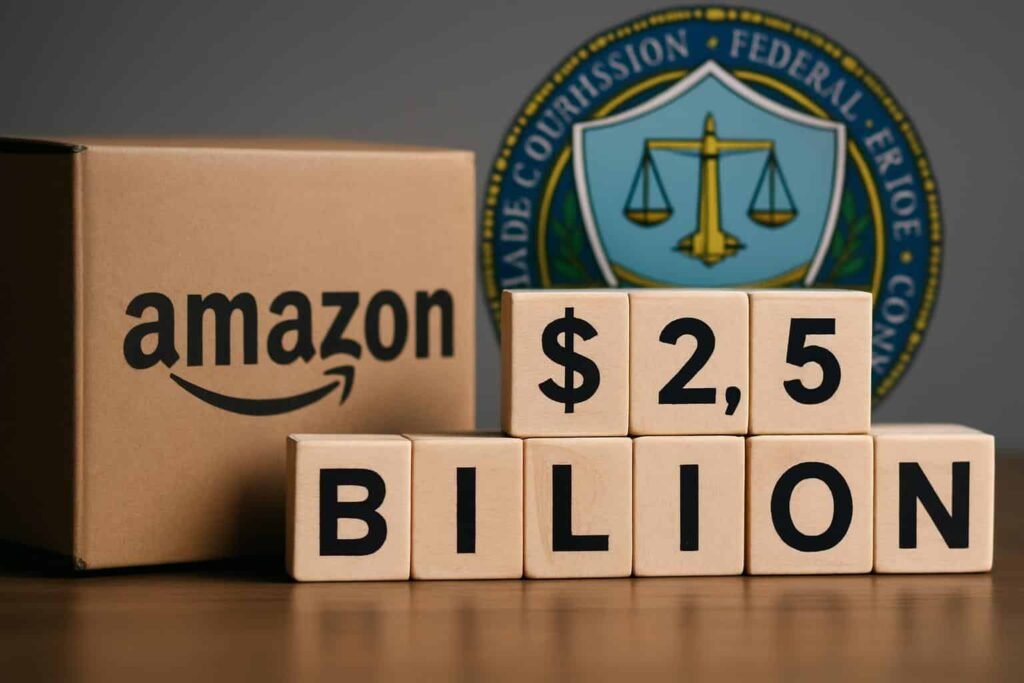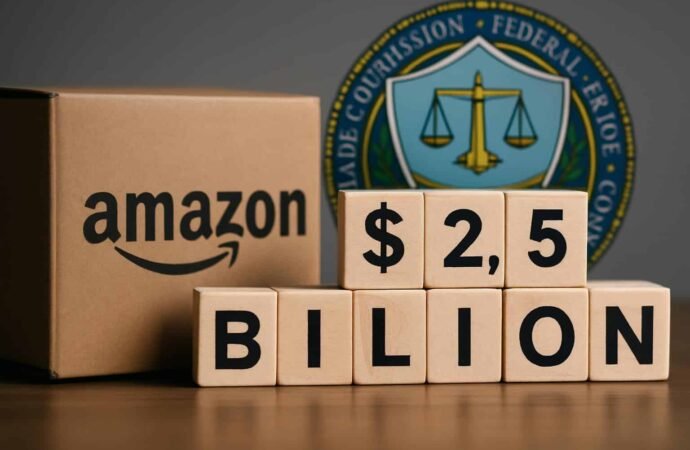In a striking development that reverberated through the tech world, Amazon has agreed to pay $2.5 billion to settle claims by the U.S. Federal Trade Commission (FTC) that the e-commerce giant misled customers into subscribing to its Prime service and made cancellation unduly difficult. The settlement reached just days into a federal trial marks a
In a striking development that reverberated through the tech world, Amazon has agreed to pay $2.5 billion to settle claims by the U.S. Federal Trade Commission (FTC) that the e-commerce giant misled customers into subscribing to its Prime service and made cancellation unduly difficult. The settlement reached just days into a federal trial marks a milestone not only in the history of consumer protection law, but also in how subscription-based businesses may be regulated moving forward. Here is what this case means, how it unfolded, and what it might signal for the future of digital subscriptions.
The Basics: What Amazon Must Do, and What Consumers Get
- Amazon will pay $1 billion in civil penalties—the largest fine ever imposed by the FTC for violating a rule.
- It will also provide $1.5 billion in refunds to consumers who were “harmed by their deceptive Prime enrollment practices.”
- The settlement affects approximately 35 million Prime customers who may have been enrolled through confusing or misleading offers, or who were deterred from canceling.
- Amazon must now adopt clearer disclosures, explicit consent for Prime enrollment, and a materially easier cancellation process.
- The settlement imposes ongoing requirements to avoid “subscription traps” and to monitor compliance.
In many cases, eligible customers will receive automatic refunds up to $51 if they were enrolled under certain pathways and used only limited Prime benefits. Others who were more active but nevertheless affected may file claims via a claims process. Importantly, Amazon does not admit any wrongdoing as part of the agreement. The company stated that it already holds many of the practices required by the settlement, and that the deal allows it to move forward.
The FTC’s core claims revolved around “dark patterns” and manipulative subscription design:

Misleading enrollment cues
The complaint alleged that Amazon would present buttons, checkboxes, or checkout flows that did not clearly disclose they would enroll a user into Prime (or renew a subscription). Some offers described as “free shipping,” for example, were bundled with Prime enrollment without explicit consent.
Opaque cancellation process (codenamed “Iliad”)
Internally, Amazon reportedly labeled its cancellation workflow “Iliad” a nod to the lengthy siege depicted in Homer’s epic. To cancel, a user had to navigate through multiple steps (e.g. three separate confirmation pages) in a process that the FTC said was designed to frustrate or deter cancellation.
Internal resistance to improvement
According to documents referenced by the FTC, Amazon leadership slowed or rejected proposals to make cancellation easier or more transparent. In other words, changes that might have mitigated consumer harm were allegedly resisted.
Use of confusing user interface language
The FTC challenged language on Amazon’s site such as “No thanks, I don’t want free shipping,” which obscured that declining free shipping meant declining a Prime subscription.
Violation of the Restore Online Shoppers’ Confidence Act (ROSCA)
The FTC asserted that Amazon’s practices violated ROSCA, a law passed in 2010 to protect consumers in online transactions by requiring clear disclosure and consent in recurring charges.
The $2.5 billion settlement marks a historic turning point in the battle between regulators and Big Tech, combining the largest civil penalty ever tied to an FTC rule violation with one of the biggest consumer restitution payouts in U.S. history. Beyond Amazon, the case sends a clear warning to all subscription-based businesses: deceptive sign-up flows and burdensome cancellation processes will no longer be tolerated. For consumers, it offers long-awaited accountability and the promise of clearer choices; for Amazon, it represents both a financial reckoning and a test of how well the company can rebuild trust in one of its most critical revenue engines.

















Leave a Comment
Your email address will not be published. Required fields are marked with *